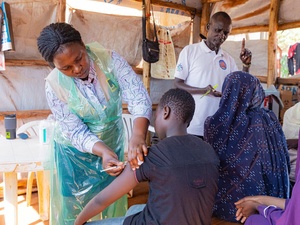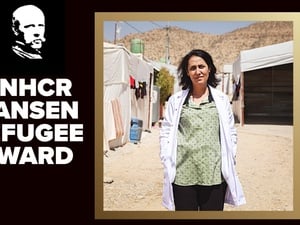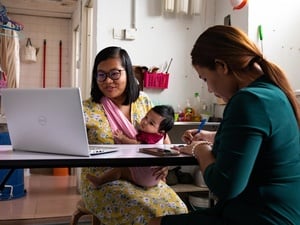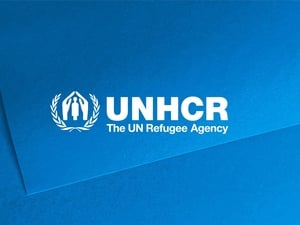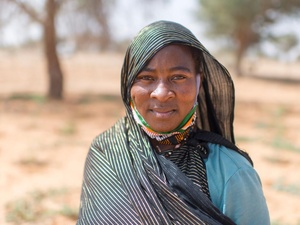WHO/UNHCR conference seeks to improve health care for Iraqi refugees
WHO/UNHCR conference seeks to improve health care for Iraqi refugees
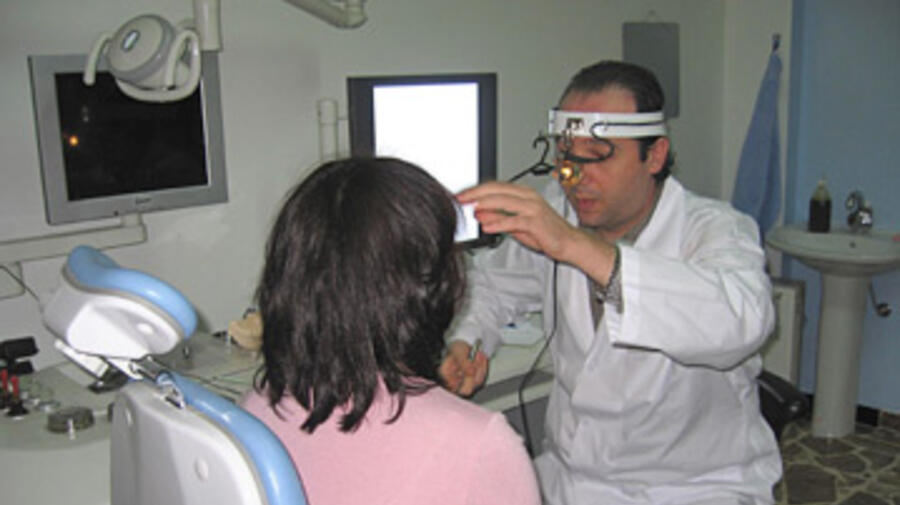
UNHCR supported the Syrian Arab Red Crescent to open a new clinic in Jaramana, Damascus to serve the large number of Iraqis that are living in the area.
DAMASCUS, July 30 (UNHCR) - Regional ministers of health and international organisations such as the UN refugee agency met in Syria to examine the problems in health care facing more than two million Iraqis who have fled to neighbouring countries.
The World Health Organisation (WHO) in coordination with the United Nations refugee agency (UNHCR) convened the conference on 29-30 July in the Syrian capital, bringing together the ministers of health of Iraq, Jordan, Syria and Egypt; other UN agencies, the International Committee of the Red Cross (ICRC) and the International Federation of the Red Cross (IFRC).
"UNHCR is in daily contact with Iraqis listening to their problems and sympathizing with their pains and knows that the sick, the disabled and the needy among them have a lot to bear," Radhouane Nouicer, UNHCR's director for the Middle East and North Africa, said in his opening address.
"Among them are thousands of orphans, widows - without anyone to provide for them - and many others with special needs suffering in silence, waiting with impatience and courage for help to arrive."
The conference reviewed the current situation and access to health services for Iraqis in countries neighbouring Iraq. It discussed the challenges in ensuring access to health services, providing the needed resources and monitoring the situation.
More than 2 million Iraqis have fled to nearby countries - primarily Syria and Jordan - from the violence in their homeland. UNHCR has registered more than 160,000 Iraqis in Syria, Jordan, Lebanon, Egypt and Turkey - a number expected to increase to 250,000 by the end of the year.
UNHCR launched an appeal this month for $123 million to fund a large-scale assistance programme for Iraqis in Jordan and Syria - covering registration, food, health and education for uprooted Iraqis.
Under the health component, UNHCR and its partners, particularly the Red Crescent Societies, will focus on the immediate provision of medical care, rehabilitation of hospitals, the opening of clinics, capacity-building for medical staff and provision of new medical equipment, including at least 11 ambulances in Syria. UNHCR has also provided financial support for serious medical cases, such as cancer patients. By June 2007, UNHCR had provided medical care and referrals to over 11,000 Iraqis in Syria alone.
But the burden on the host countries and the needs of Iraqi refugees remains huge, despite the promise of assistance. The conference sought to bring international and national actors together and lead to a more integrated response to the health needs.
"The countries hosting Iraqis are carrying a huge burden that is affecting their economy, security, society and infrastructure and until now the support they receive has not been at the level of the burden," said Nouicer. "Schools are overcrowded and the health clinics and community centres are reaching their limits."
"And despite what host countries and humanitarian organizations are presently doing, the needs are always more. We all need to multiply our efforts to help Iraqis and the host countries and societies."
By Astrid van Genderen Stort in Damascus, Syria


